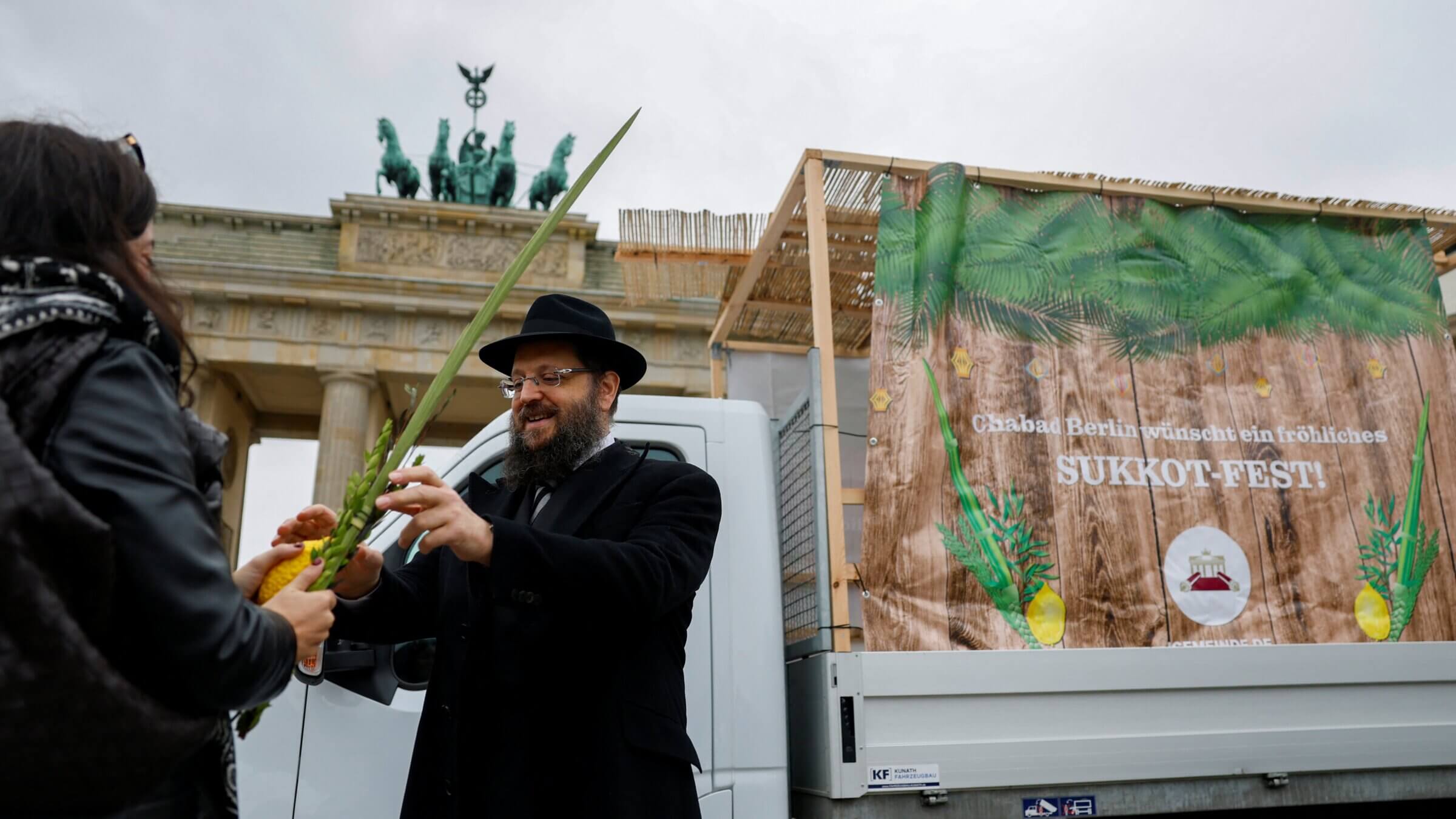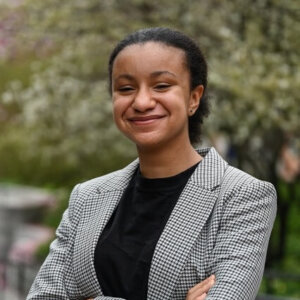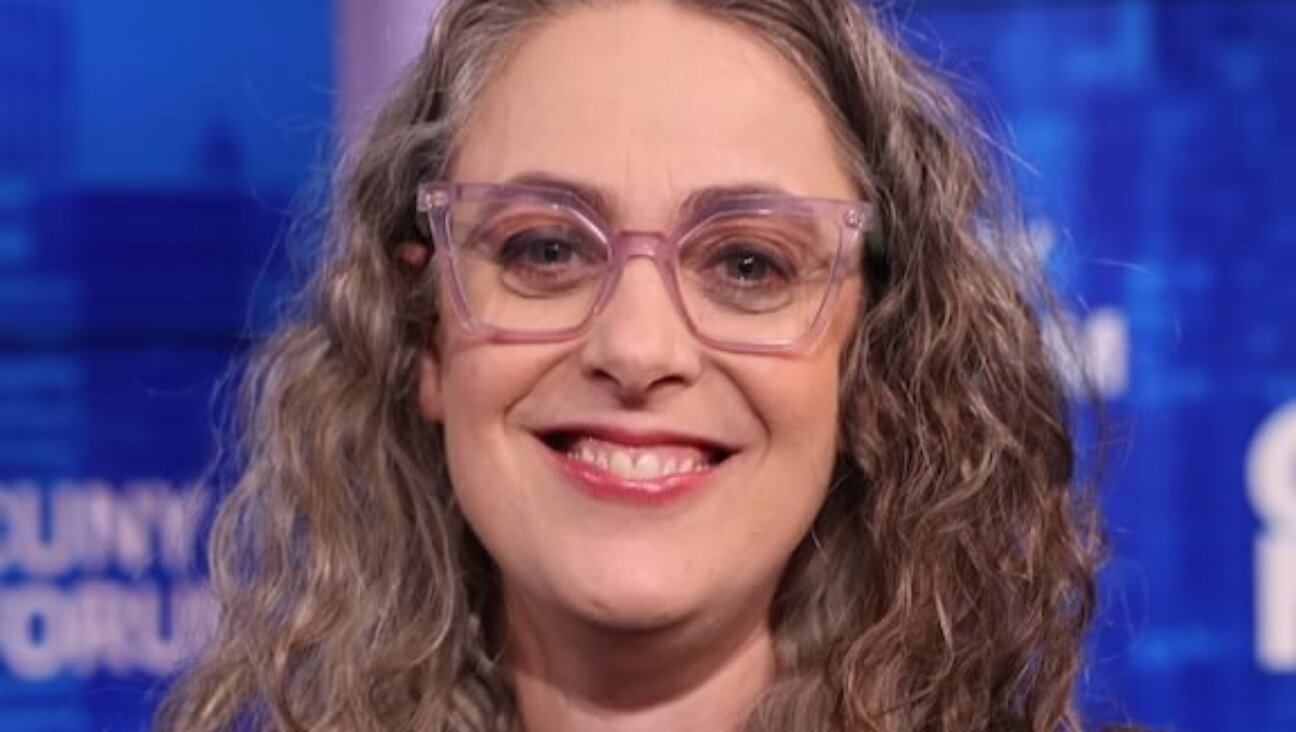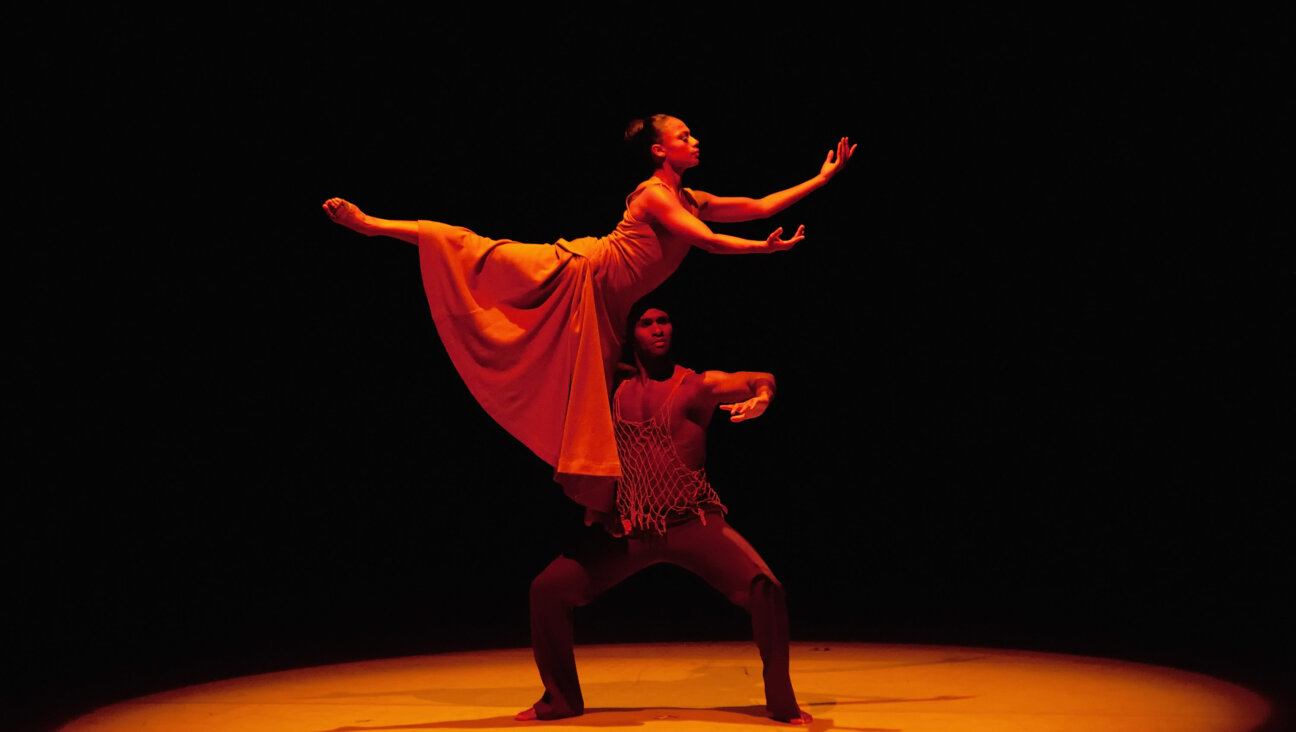Actually, I’d love for Chabad to ask me if I’m Jewish
What might seem like a nuisance to some is a Jewish experience I want to have.

A Chabad rabbi offer prayers in front of a mobile “Sukkah” to celebrate the Jewish holiday of Sukkot at Brandenburg Gate in Berlin. Photo by Odd Andersen/AFP via Getty Images
I was waiting with my friend for a train in New Jersey when we were approached by a young missionary from the Church of Jesus Christ of Latter-day Saints. Unaware of the fact that we were currently on our way back to New York from a Sukkot party, he asked if we’d like to attend church with him on Sunday. When we told him we were Jewish, he politely responded, “I respect that. G-d bless you.” Probably the nicest ending to a proselytizing interaction one could hope for.
Once the missionary left, my friend told me he was reminded of being incessantly approached by religious devotees from Chabad, asking him to shake the lulav and etrog. Although he talked about this barragement as an annoyance, I saw it as a privilege.
As a Black woman, I don’t exactly fit the model for the types of people Chabad profiles and have never been approached. It doesn’t happen to me in New York, where a Mitzvah Mobile is a common sighting. It didn’t happen to me on the main walkway of my college campus, where the local Chabad chapter would set up a table as a holiday would approach.
One Rosh Hashanah in college, I decided that if I wanted to be recognized as Jewish (and get the free apples and honey Chabad was handing out) I would have to take matters into my own hands. I approached the table and said “Chag Sameach.” They greeted me warmly, if with surprise, and invited me to their services. I approached them in the same way at Sukkot, and got invited into their sukkah to shake the lulav and etrog.
I’m sure there are a lot of people out there who envy my position — a Jew who gets to fly under the radar and not get stopped every few blocks. But I felt like I was being left out from something every other Jew got to experience (even if they experience it begrudgingly).
I don’t totally hold it against the members of Chabad that they target a certain subset of people. With limited resources, you can’t approach everyone. Statistically speaking, in America, the vast majority of Jews are white, with an estimated 12-15% being Jews of color, according to a study by the Jews of Color Initiative. However, it does seem counterintuitive to not cast as wide a net as possible when hoping to talk to as many Jews as you can.
The assumptions don’t go both ways. Chabad opens with the question “Are you Jewish?”, acknowledging that religious diversity exists among white people. But they often overlook that the Jewish community itself is diverse enough to warrant asking people of color that question.
But haven’t I been guilty of profiling, too?
The year after the shooting at the Tree of Life Synagogue, I became the Youth Representative on my hometown synagogue’s board. Every year, all members of the board are required to volunteer as ushers for High Holy Day services, but that year there was an extra requirement: attend a security training to learn what to do in an active shooter situation. In addition to being taught which stairwells to lead people down and how to barricade doors, we were instructed to identify individuals who looked out of place or who we didn’t recognize. What you should do, the former SWAT member leading the training told us, was go out of your way to welcome them as they entered the synagogue, ask them seemingly benign questions about what was bringing them there, see if you could sense whether they were friend or foe.
This instruction primarily led ushers to cautiously approach bald white men (potential skinheads) or particularly hairy white men (possible members of a white supremacist biker gang) and chat them up. Thankfully, all of these men ended up being either synagogue members or family visiting from out of town.
Looking back, it feels embarrassing. It’s definitely discriminatory. But at the time, it also felt necessary.
Profiling people for security purposes is obviously very different from doing it to decide who is eligible to light shabbat candles, but they both involve making assumptions about who belongs. My liberal impulse is to shun this behavior, but the dynamics of determining belonging have complexities beyond what our political ideals might be.
However, society never stays stagnant. As the number of Jews of color grows, perceptions of what being Jewish looks like will have to expand. And maybe one day we’ll be able to live in a world where trying to guess if a new face belongs to a white supremacist won’t feel like a requirement to pray in peace. Hopefully, it will also be a world where everyone has lulavs shoved in their faces too.
Editor’s note: This story was updated to attribute the statistic that 12-15% of U.S. Jews are people of color to a study by the Jews of Color Initiative, the most widely accepted estimate of the population.

















